Writing Teaching Resources
Teaching writing strategies and the writing process this school year? Explore a comprehensive collection of teacher resources for primary English teachers — all created by teachers!
Stocked with graphic organisers, writing prompts, templates, worksheets and so much more, this collection of printable and digital activities is designed to help you as you help your students become more effective communicators and unleash their creativity and imagination.
Save time on lesson planning with resources that are aligned with the Australian curriculum (including version 9!) and have been through a careful review process by an expert member of our teacher team to ensure they're ready for your classroom and your students!
Are you looking for tips and tricks to add to your teacher toolkit this school year? Read on for a primer from our teacher team, including engaging activities for teaching writing inprimary school and a look at some of the different writing strategies your students will need to learn.
11 Writing Strategies Kids Should Know by the End of Primary School
We can't talk about teaching kids to write without talking about the different writing strategies that can help them do just that!
When it comes to teaching our students to become confident writers who articulate their ideas effectively, here are some of the strategies our teacher team prioritises:
1. Brainstorming
Brainstorming is something we often do in the classroom, and it's a crucial part of learning to generate the ideas that will drive students' writing as they progress through their educational journey. Kids should know how to create a list of potential topics or points related to a particular writing assignment.
With younger students, this is often done as a whole group by writing ideas and points on chart paper. In upper years, students transition over to using text-based materials to generate ideas and talking points.
2. Outlining
Before diving directly into any assignment, our students should be able to create a structured framework or outline. Teaching students how to create this outline will help them organise their thoughts and arguments for penning their essays, reports and research papers.

3. Using Graphic Organisers
Technically graphic organisers are classroom tools, so you may not think of their use as a writing strategy per se. However, learning to use these tools is another means of providing kids with the tools they need to organize their ideas and information before they sit down to write.
These organisers are particularly useful for expository writing — students can use them to outline main ideas, supporting details, and transitions.
Students can also take advantage of story maps when they are working on narrative writing to plot the key elements of a story, such as characters, setting, conflict, rising action, climax and resolution.
Graphic organisers such as the OREO strategy and hamburger paragraph are also great tools for students to use when working with opinion and persuasive texts.
4. Freewriting
Writer's block is the enemy of creativity, and it can easily frustrate young students who don't know where to begin.
When students freewrite, they write continuously without worrying about grammar or punctuation. This writing strategy can be extremely freeing — hence the name! — and helps frustrated writers move past that writer's block, generating fresh ideas.

5. Peer Editing
Learning to review and provide constructive feedback on each other's work is a great writing strategy to employ in your classroom to help students improve their writing quality and enhance their editing skills.
The strategy allows your students to learn from one another, and it arms them with an important tool they can use well into the future — calling on peers to provide a critical eye to a piece of writing.
6. Using Sensory Language
Working on descriptive writing? With this writing strategy, students engage the reader's senses through vivid and sensory language to create a more immersive experience.
7. Including Transitions and Connectives
As students become more proficient in the writing process, learning to use transitional words and phrases allows them to create smooth transitions between sentences and paragraphs. This strategy makes their writing more coherent and polished.
8. Incorporating Evidence
In persuasive, opinion and expository writing, students are taught to support their claims with evidence and examples to strengthen their arguments.
It takes some practice to train your students to use evidence in their writing, so it's often a good idea to start with something simple, like the R.A.C.E.S. strategy.
9. Crafting a Thesis Statement
In expository, opinion and persuasive writing, crafting clear and concise thesis statements that summarise the main point or argument of their essay helps students be more focused and organised in their writing.
This strategy can also have the effect of empowering students to express their ideas confidently and persuasively.
10. Incorporating Introductions and Conclusions
With this strategy, students practice crafting effective introductions and conclusions that grab the reader's attention and leave a lasting impression.
11. Following a Revision Checklist
Teaching your students to use a revision checklist is a strategy that will help them be more self-reflective, evaluating their own writing against the checklist criteria and becoming more aware of their strengths and weaknesses.

- Plus Plan
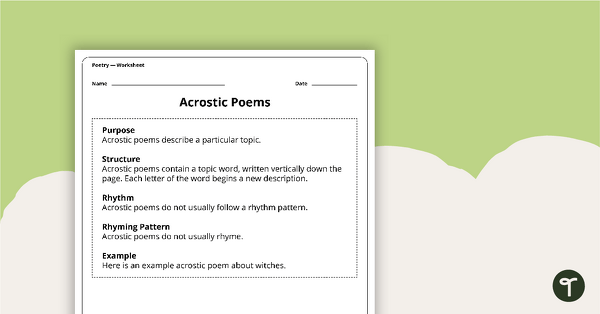
Write an Acrostic Poem Worksheet
Set your students up for success when writing an acrostic poem with this set of scaffolded, easy-to-follow worksheets.
- Plus Plan
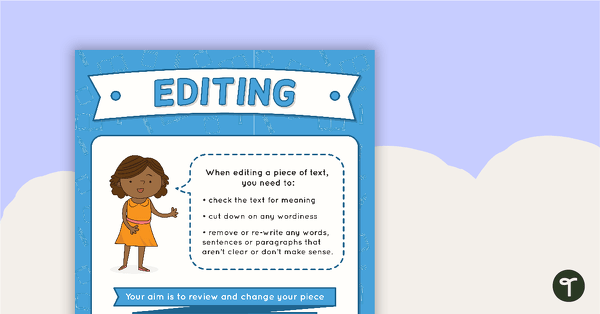
Editing and Revising Anchor Chart
Use this editing and revising anchor chart to remind your students of the steps involved in revising and editing their writing.
- Plus Plan
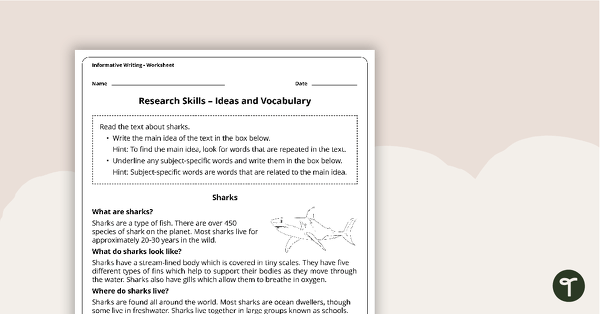
Note-Taking Practice Worksheets
Use this set of note-taking practice worksheets to help your students identify key facts, details and vocabulary when researching information.
- Plus Plan
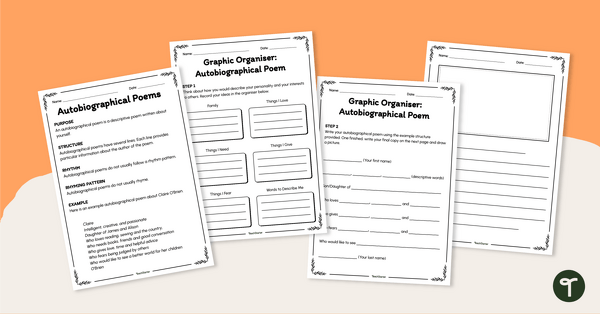
Write an Autobiographical Poem Worksheet
Set your students up for success when writing an autobiographical poem with this set of scaffolded, easy-to-follow worksheets.
- Free Plan
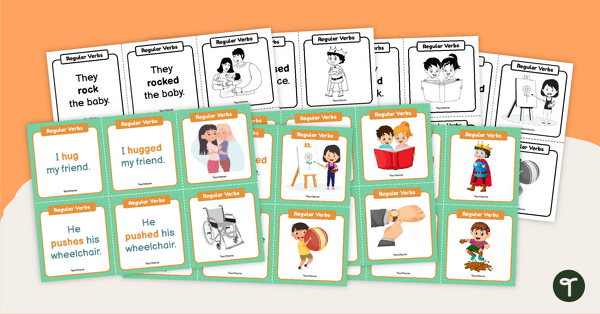
Present and Past Tense Regular Verbs Matchup Cards
Learn about simple present tense and simple past tense of regular verbs with this match up activity.
- Plus Plan
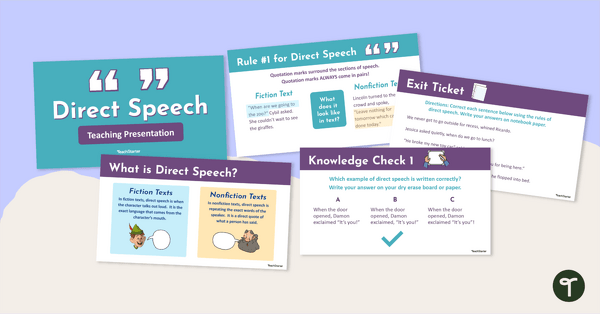
Direct Speech - Teaching Presentation
Teach the rules of punctuating direct speech using double quotation marks with an interactive teaching presentation.
- Plus Plan
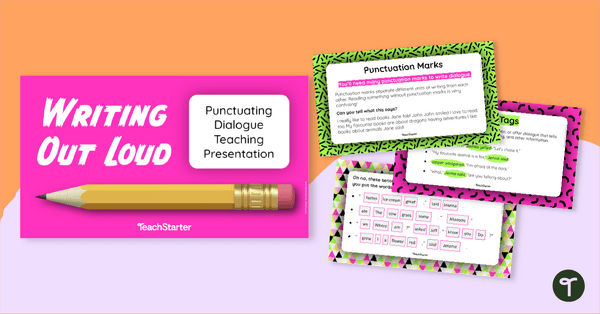
How to Write Dialogue - PowerPoint Teaching Slides
Teach your students how to write dialogue using double quotation marks with an interactive teaching presentation.
- Plus Plan
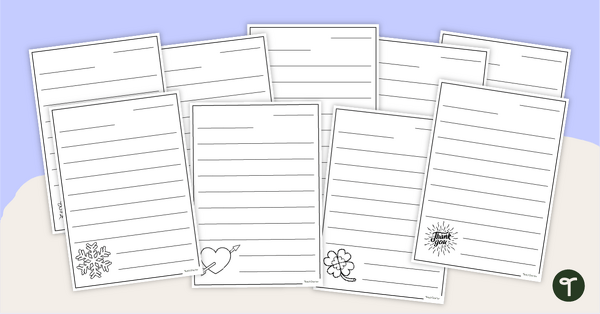
Themed Letter Writing Template Pack
Print and use a letter writing template each month to encourage your students to write friendly letters.
- Plus Plan
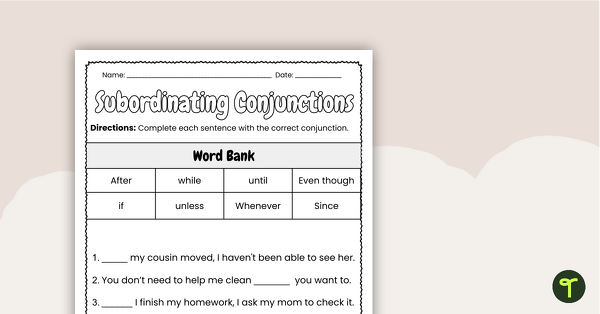
Subordinating Conjunctions Worksheet
Use this worksheet to enable students to practise identifying and constructing sentences using subordinating conjunctions.
- Plus Plan
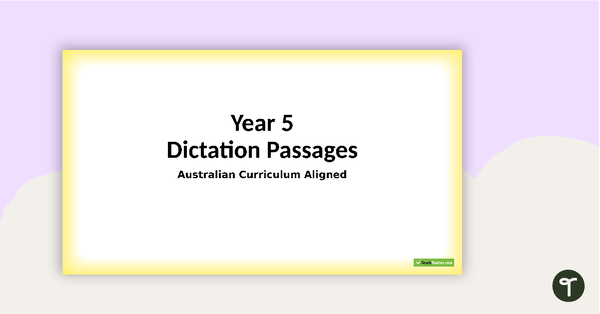
Year 5 Dictation Passages PowerPoint
Use this set of Year 5 dictation passages to promote listening and transcription skills in your students.
- Plus Plan
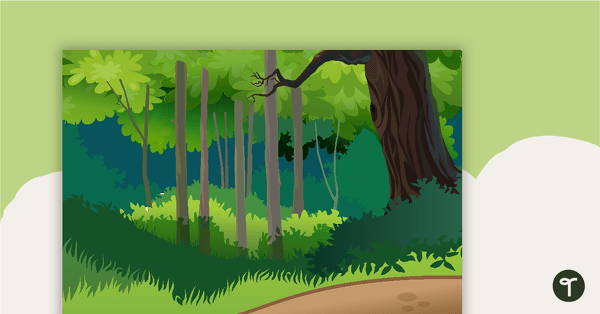
Fairy Tales Settings Posters
A set of 6 fairytale story settings background posters.
- Plus Plan
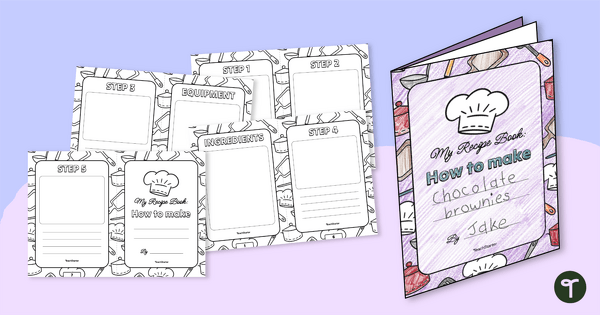
Procedure Writing – Printable Recipe Book Template
Download this printable recipe book template to use when teaching procedural writing to your early years students.
- Plus Plan
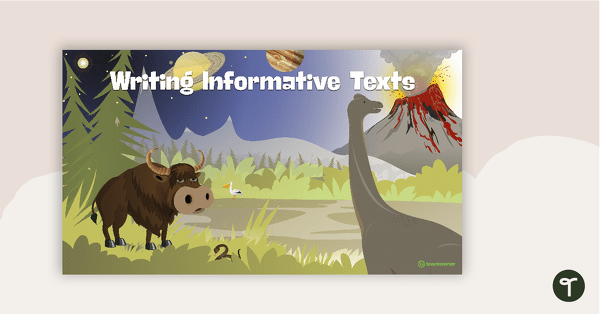
Writing Information Reports Teaching Slides
Teach your students the features of information reports using this detailed slideshow targeted at upper primary school students.
- Plus Plan
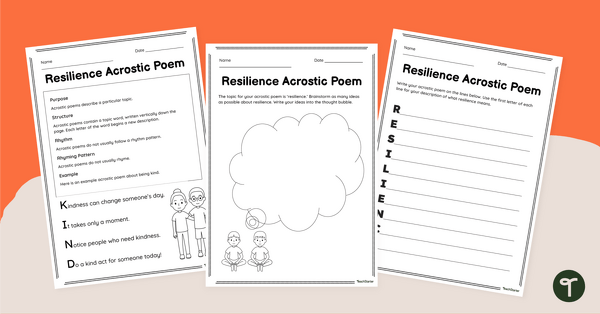
Resilience Acrostic Poem Worksheet
Have students write a resilience poem to help them understand the meaning of this crucial social-emotional skill.
- Free Plan
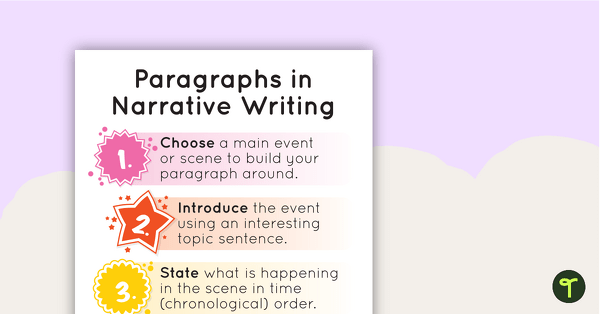
Paragraphs in Narrative Writing Poster
A poster explaining how to write paragraphs in narrative texts.
- Plus Plan
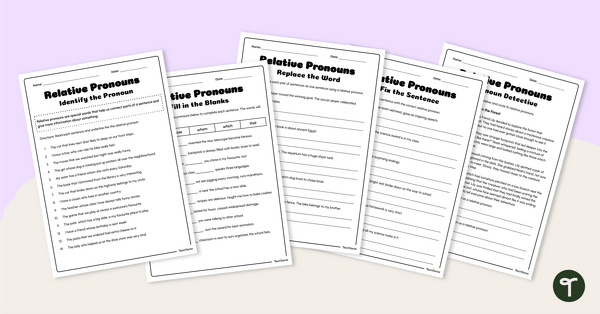
Relative Pronouns Worksheet Pack
Use this relative pronouns worksheet pack to get your students identifying and using these essential parts of speech.
- Plus Plan
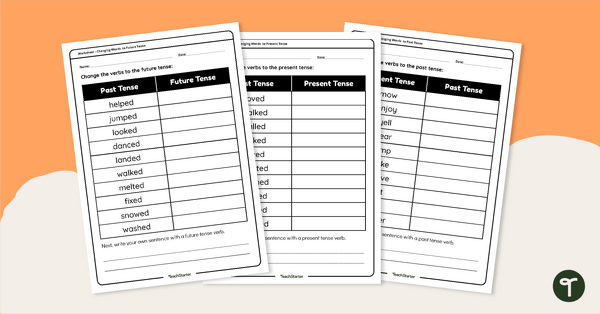
Past, Present and Future Tense Worksheets
Provide students with additional verb tense practise with worksheets focusing on changing verbs into past, present and future tense.
- Plus Plan
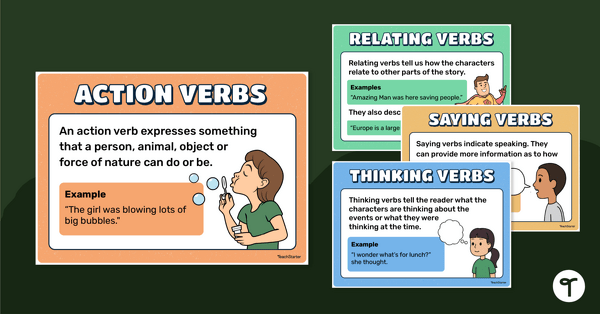
Types of Verbs Poster Set
Explore the different types of verbs with this set of verb posters displaying the definition and examples of action, saying, thinking and relating verbs.
- Plus Plan
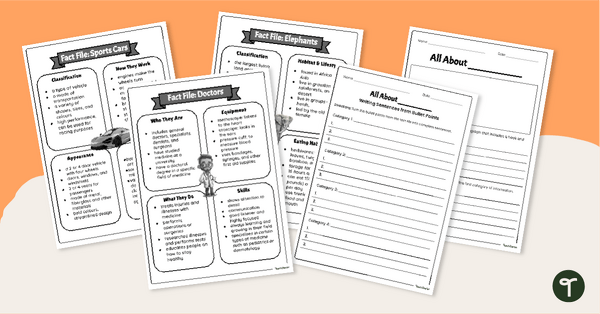
Fact File and Report Writing Scaffold Pack
Teach your students to write informative texts using this selection of animal, object and occupation fact files.
- Plus Plan
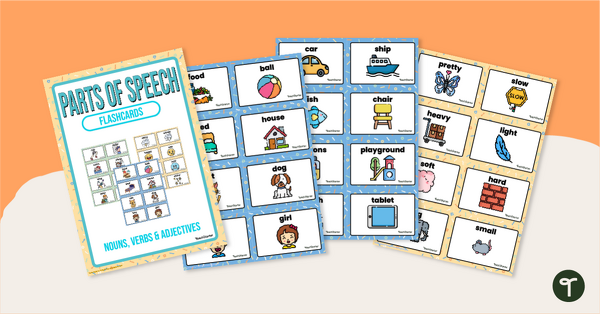
Nouns, Verbs and Adjectives Flashcards
Create a variety of grammar activities with 60 printable noun, verb and adjective flashcards.
- Plus Plan
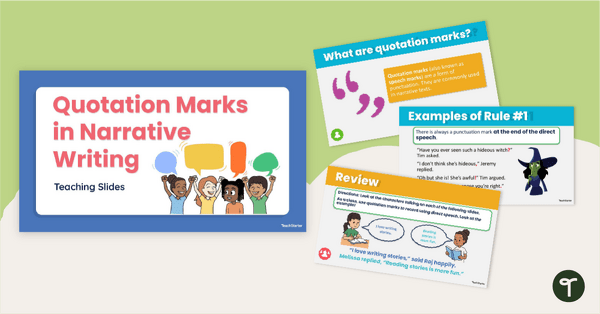
Using Quotation Marks in Narrative Writing PowerPoint
Teach the correct usage of quotation marks in narrative writing with this set of teaching slides.
- Plus Plan
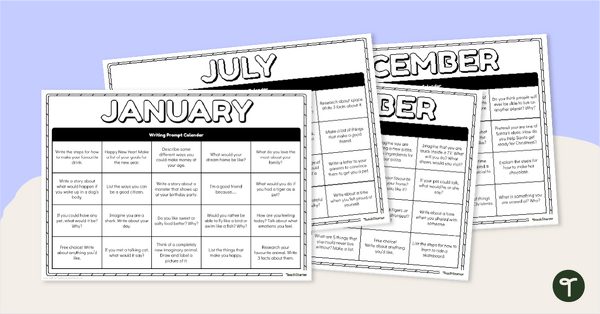
Creative Writing Prompt Choice Boards - Lower Primary
Encourage your little learners to write with fun writing prompts for years 1 and 2.
- Plus Plan
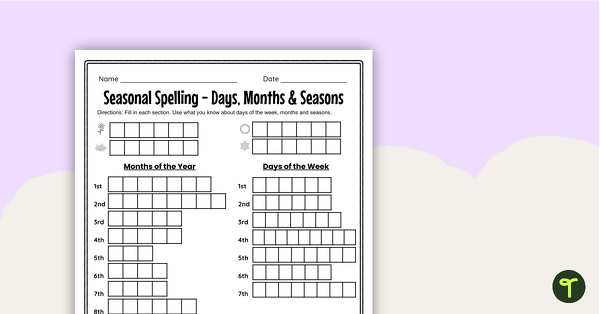
Seasons, Days, & Months of the Year Spelling Worksheet
Spell the days of the week, months of the year, and the four seasons with a printable Spelling Homework sheet.
- Plus Plan
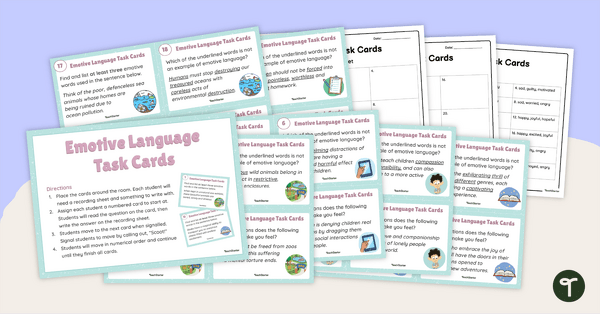
Emotive Language Task Cards
Get students exploring emotive language examples with this set of task cards perfect for your persuasive writing unit.
- Plus Plan
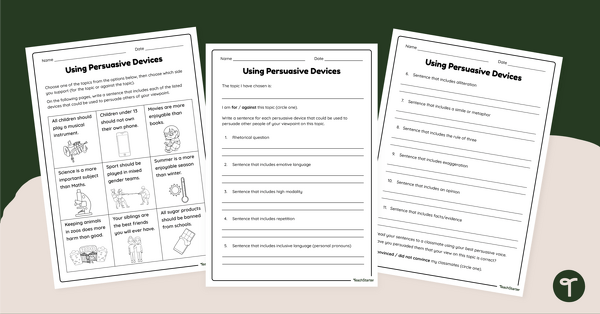
Using Persuasive Devices Worksheet
Use this persuasive devices worksheet to help your students create persuasive device examples based on a specific topic.
- Plus Plan
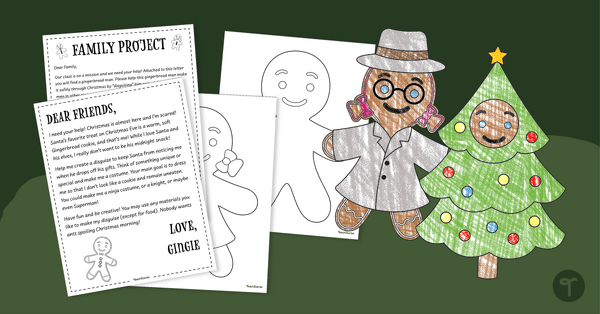
Gingerbread Man Disguise Project
Design a Gingerbread Man disguise to save Gingie from getting eaten by Santa with a printable Gingerbread Man Disguise project.
- Free Plan
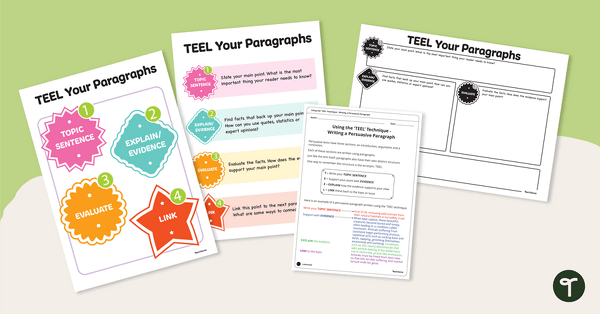
TEEL Paragraph Structure Poster and Worksheets
Explore the acronym TEEL to help with paragraph technique during persuasive writing lessons.
- Plus Plan
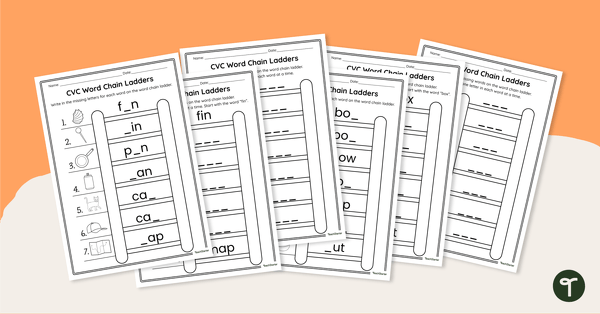
CVC Word Chain Ladders - Worksheets
Build word chains with CVC words using this set of printable phonics worksheets.
- Plus Plan
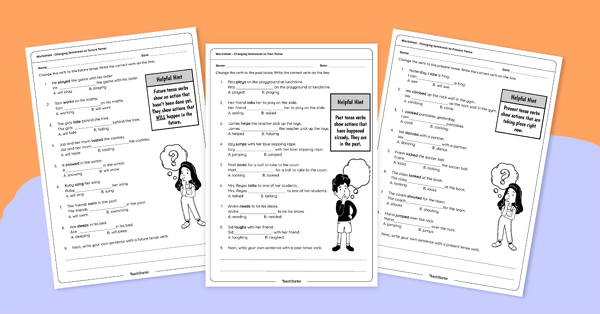
Writing Sentences in Past, Present and Future Tense Worksheets
Practise verb tense by changing sentences into past, present and future.
- Free Plan
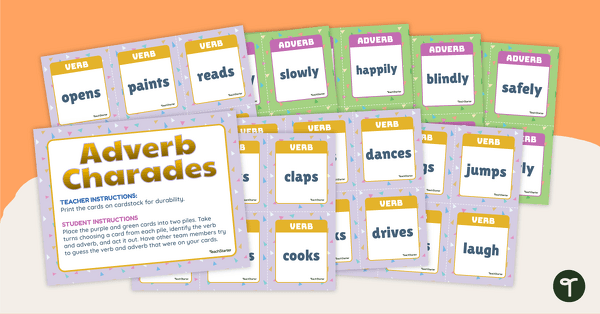
Adverbs Activity : Grammar Charades
Have some fun and build grammar skills with an adverb charades activity.
- Plus Plan
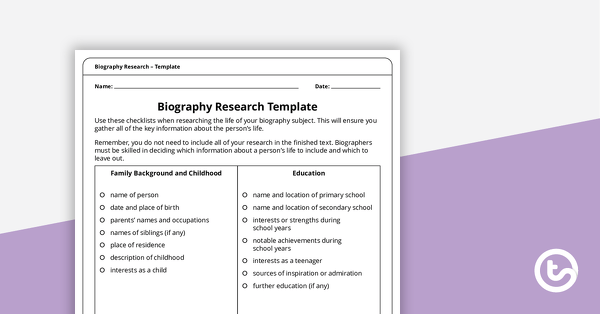
Biography Research Template
A research template for older students to use when writing a biography.
- Plus Plan
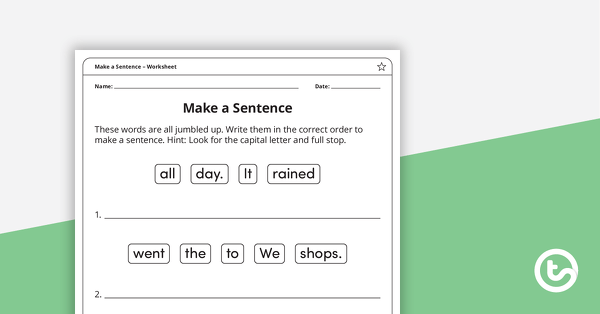
Make a Sentence – Worksheets
A set of worksheets where students un-jumble words to create a sentence.
- Writing Worksheets
- Writing Templates
- Writing Games
- Writing Posters
- Writing Teaching Presentations
- Writing Labels, Signs & Decorations
- Writing Word Walls
- Writing Projects
- Writing for Preschool/Kindergarten
- Writing for Foundation Year
- Writing for Year 1
- Writing for Year 2
- Writing for Year 3
- Writing for Year 4
- Writing for Year 5
- Writing for Year 6
- Writing for Year 7